Imagine you are a young girl residing in a rural coastal community in Bangladesh, one of the communities most affected by the climate crisis. Your daily life requires balancing domestic, school, and work responsibilities, juggling arduous tasks like fetching water, getting to and from school safely, helping cook family meals, and taking care of your younger siblings, among other household chores. In addition, you work occasional underpaid jobs outside the home because your father migrated to the city due to changing sea levels. This exhausting routine mirrors that of your friends, neighbors, and teachers. Despite all this, you maintain good grades at school and hope to eventually become a nurse. Unfortunately, due to shared systemic oppression and struggles, your community can offer little support to the possibility of your continuing in formal education.
In Bangladesh, as in many other countries, women and girls are expected to carry most of the climate crisis burden, facing a high loss of livelihood opportunities, increased sexual harassment, and little scope of political participation when facing natural disasters. To better understand how girls exercise their agency in marginalized contexts, including climate crisis-affected settings, the Learning and Action Alliance for Girls’ Agency (LAAGA), in collaboration with Education and Cultural Society (ECS), has worked on exploring what agency looks like for adolescent girls between 10-19 years old living in the coastal communities of Feni district, Bangladesh. This effort is part of LAAGA’s initial country case studies encompassing Vietnam, Zimbabwe, Bangladesh, and the Karamoja region of Kenya and Uganda. Recognizing the need for evidence-based practice and policy, LAAGA and ECS co-organized two research presentations in Feni and Dhaka in February 2024. These events were attended by girls themselves, policymakers, educators, and partners in civil society and academia.
Here are three of our initial findings shared by LAAGA in Bangladesh:
Agency requires a systemic, cross-sectoral, and multi-level approach
While girls’ agency has often been defined as an individual trait that can be developed through a focus on skills and abilities, our research shows that a more systemic approach is needed. Multiple forms of oppression and exclusion affect most of the girls who are part of LAAGA’s research in Feni, and these are only exacerbated by the climate crisis. The girls we spoke with pointed to economic inequality, unfair distribution of chores and care work, religious and cultural norms, family structure, climate displacement, and lack of transportation access as some of the challenges to their agency.
Clearly, transformations in the education sector alone cannot respond to this set of obstacles. We are not alone in our systemic reading of agency; recent research has shown that the exercise of women’s agency is strengthened by widening social security networks: social care systems, cash transfers, economic equality efforts like asset acquisition, and climate-responsive public infrastructure, among other interventions. Transformations in the education, health, economic, and transportation sectors hold the potential to impact girls’ agency.
Agency is learned in community and girls need access to strong role models
Girls in our research indicated that they learn to exercise agency by observing, listening, and engaging with other girls and women who have had the chance to decide and pursue their dreams and aspirations. Agency is modeled. Throughout our research, we gained valuable insight into how girls learn agency by imitating and supporting others, such as female family and community members who, for example, have decided to continue their formal education or join the labor market. School can be a safe space for girls to find role models, including teachers and fellow students, but girls also pointed to the role of media in promoting discourses around gender that can both constrain or enable girls’ access to agency role models.
Nevertheless, girls also spoke of significant challenges to finding role models, like limited availability of intentional opportunities and safe spaces for girls to learn from each other, deficient efforts to develop media literacy with girls to recognize gender-based violence in the media they consume, and lack of skills to negotiate social norms that stigmatize girls who exercise their agency. Furthermore, a considerable number of girls, primarily those out of school or enrolled in orthodox religious education, fall outside social structures and spaces that may offer more complex views about the spectrum of agency.
Through the LAAGA presentations in Feni and Dhaka, the network committed to work with local policy actors, academics, communities, and girls themselves to address girls’ agency challenges in Bangladesh. At LAAGA, we think that the social nature of agency is an opportunity: collective work can allow for movement building.
Agency implies girls defining their own solutions
Grounded in Girl-Centered Methodologies, LAAGA’s research in Bangladesh shows that collaboration with girls is fundamental in guiding policy and practice for girls’ agency. LAAGA embraces an ethos of participation and humility, recognizing that girls and communities are the most aware of how they are affected by systemic challenges, in this case, the climate crisis. Drawing on LAAGA’s research in Feni, the LAAGA team in Bangladesh identified three key practices to support girls in defining their own exercise of agency: a) inclusion of girls as researchers, not only as participants, b) adaptation of research questions and interests to appropriate girl-friendly language, and c) intentional and radical inclusion in policy spaces of girls as experts on their own lives. Girls can identify, propose, and support policy and practice that strengthen their agency; it is the job of researchers, practitioners, and decisionmakers to create and facilitate methods that allow them to do so. For girls to co-create their own solutions, we must change the ways in which we research, speak, and make policy to make them more inviting, empathetic, and generous.
LAAGA’s initial findings in Bangladesh present unique contributions to the discussion around girls’ agency and the climate crisis. Together with our findings in Kenya/Uganda, Vietnam, and Zimbabwe, they offer an alternative perspective on agency from the point of view of girls living in marginalized rural contexts. Stay tuned for our upcoming regional and global reports to be published in the coming months. We hope for these reports to inform actions that support girls in exercising their agency.
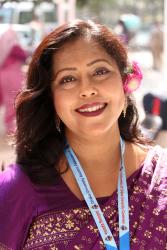
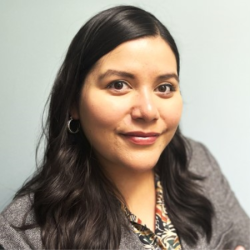
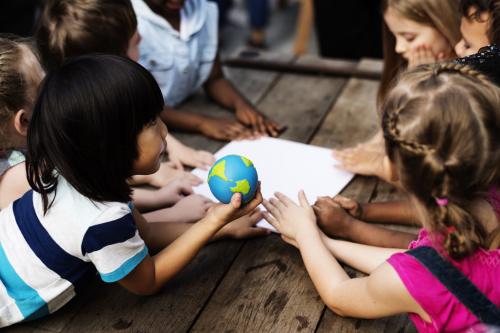
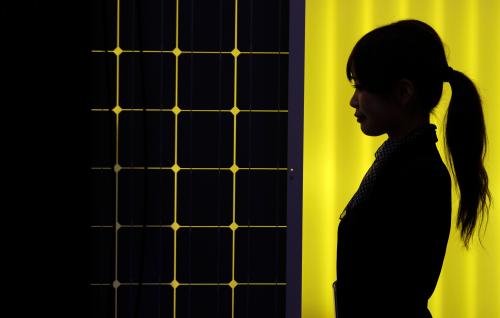
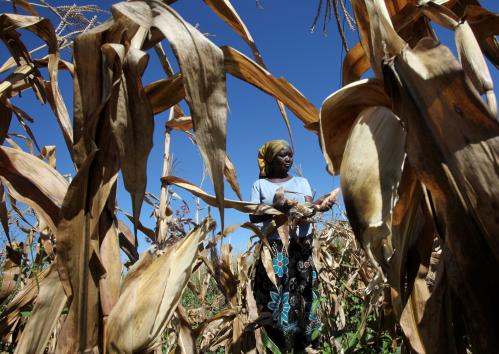
Commentary
Girls’ agency at the crest of the climate crisis
Insights from LAAGA’s research in Bangladesh
April 23, 2024